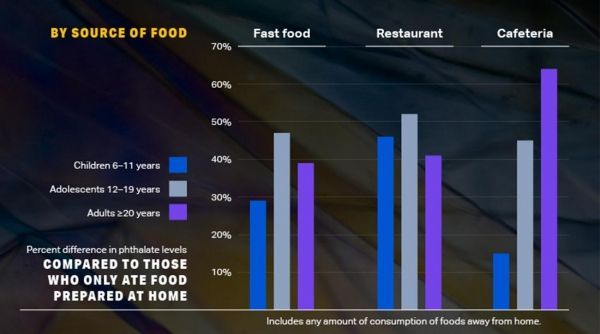Dining out more at restaurants, cafeterias and fast-food outlets may boost total levels of potentially health-harming chemicals called phthalates in the body, according to a study out today. Phthalates, a group of chemicals used in food packaging and processing materials, are known to disrupt hormones in humans and are linked to a long list of health problems.
Dining out more at restaurants, cafeterias and fast-food outlets may boost total levels of potentially health-harming chemicals called phthalates in the body, according to a study out today. Phthalates, a group of chemicals used in food packaging and processing materials, are known to disrupt hormones in humans and are linked to a long list of health problems.
The study is the first to compare phthalate exposures in people who reported dining out to those more likely to enjoy home-cooked meals. People who reported consuming more restaurant, fast food and cafeteria meals had phthalate levels that were nearly 35 percent higher than people who reported eating food mostly purchased at the grocery store, according to the study.
“This study suggests food prepared at home is less likely to contain high levels of phthalates, chemicals linked to fertility problems, pregnancy complications and other health issues,” says senior author Ami Zota, ScD, MS, an assistant professor of environmental and occupational health at Milken Institute School of Public Health (Milken Institute SPH) at the George Washington University. “Our findings suggest that dining out may be an important, and previously under-recognized source of exposure to phthalates for the U.S. population.”
Read more at George Washington University
Image via George Washington University




